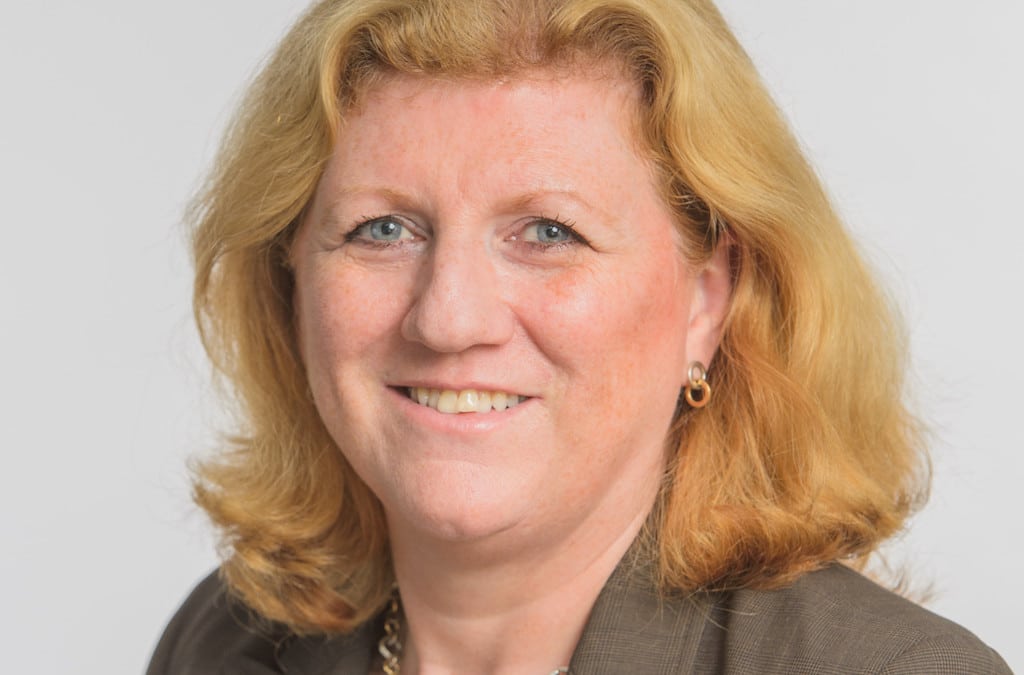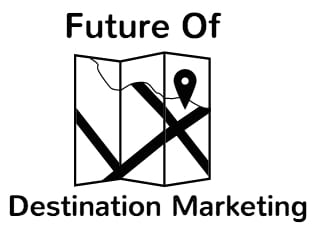Skift Take
Balcombe is in a prime position to bring about change in VisitBritain's strategies, coming from a travel background but with fresh eyes on the particular challenges of destination marketing.
Editor’s Note: Skift has started a new series of interviews with CEOs of destination marketing organizations where we discuss the future of their organizations and the evolving strategies for attracting visitors. Read all the interviews as they come out here.
This continues our series of CEO interviews that began with online travel CEOs in Future of Travel Booking (now an e-book), and continued with hotel CEOs in the Future of the Guest Experience series.
VisitBritain is the organization charged with marketing England, Scotland, Wales and Northern Ireland in partnership with the individual countries’ and cities’ tourism boards.
The organization is in the midst of a new campaign that highlights attractions outside of well-known cities. Since the UK eased visa processes for Chinese travelers in 2014, VisitBritain has been heavily focused on attracting Chinese travelers and preparing British businesses to cater to the high-spending tourists. It has also doubled down on its digital marketing initiatives including, most recently, a blog on Tumblr.
VisitBritain appointed Sally Balcombe as CEO in July 2014 following the departure of Sandie Dawe, who held the role for five years.
Balcombe built her career in the consumer travel industry, filling roles such as managing director of British Airways Holidays and the specialist sun division at TUI, as well as commercial director of Opodo and chief marketing officer at Travelport.
Her strong grasp of digital marketing and partnerships played a significant role in her selection.
Skift recently spoke with Balcombe about her new role, how digital channels are changing VisitBritain’s marketing priorities, and what she would do with ten times more funding. An edited version of the interview follows:
Skift: Travelers today are relying more on their mobile phones, researching more heavily before a trip, reading user-generated content, following aspirational content produced by people and brands. How are destination marketing organizations evolving to adapt to the habits of today’s travelers?
Sally Balcombe: We’re moving away from the idea that we have to be the central point of everything. We don’t have to create everything ourselves say, “Here’s a list of everything you need to know about Britain. Come and find it.” We’re moving towards a role where we’re much more of a catalyst.
We might use user-generated content rather than our own and add value by curating and putting a voice around it. We’re thinking about how travelers operate on different platforms and listening to what they want. It’s more about which experience they want and the insights that we can provide them.
We listen and connect rather than create and push.
Skift: Travelers are now researching and making travel decision once they’re already in a destination. How is VisitBritain talking to customers once they’re already in a UK destination?
Balcombe: We have a number of digital channels, whether it be Pinterest or Facebook, that allow people to connect with us. We have more to do in this space. Equally, some of this might not be about what we’re going to do but what our partners are going to do. It’s this idea that we might not be doing everything but that we might support somebody else that’s connecting with travelers.
Skift: Is your consumer profile, the people who are traveling to Britain, changing or evolving at all? If so, what are driving these changes?
Balcombe: It’s evolving constantly and I think that’s the same for most destinations. There’s been a big shift in demographics, both in terms of geography and types of customer, from 10 or 20 years ago. We wouldn’t be talking about the importance of China. What the Chinese customers wants and demands is very different from what the American customer wants and demands. We also have some markets where the demographic is much younger and their needs are very different.
Skift: Consumers are more informed today and destinations are making themselves more tourism-friendly. Is your competitive set, or the destinations that you’re competing with for visitors, changing or evolving?
Balcombe: It’s a competitive marketplace. We’re all changing and evolving but we’re all learning from each other. We have to look at the offers that are available and see how we can better position ourselves. Some of what we need to do is remind people how fantastic our assets are and some of what we need to do is give people new ideas.
For example, we have a brand new campaign called Countryside is Great in the United States. Americans are familiar with London, Stonehenge, and our heritage but they don’t know the whole countryside as well.
Skift: What are most important marketing platforms that VisitBritain uses today?
Balcombe: There are so many different platforms and we want to play where the customers want to play. We work across all digital, print, and radio platforms.
There is no doubt that the digital channels are growing. That doesn’t mean we don’t use others but our involvement and engagement in social channels has increased enormously. We did an amazing piece of work with Pinterest in which we were involved in the launch of their new place pin. We’re the only tourism board involved in that.
Is that the most important channel? No but it is an exploding channel. All of the social media channels are growing. In some of the emerging markets, we might still be in print. It’s appropriate in that marketplace.
Skift: What trends are you seeing in destination marketing in terms of its tone, how it is being done and how it is being communicated to travelers?
Balcombe: People are increasingly interested in the whole experience rather than just places. We are also working in a world where partnerships are incredibly important. I’m not just talking about commercial partnerships. We just worked on a new sales system that, instead of classic selling, says something like, “That film encompasses a lot about what is great about Britain.” Partnering around film tourism is another big trend.
Skift: How do you see the position of destination marketing organizations changing in the next five to ten years? Do you think they will work more or less closely with other sectors?
Balcombe: I think that we will partner more; that is how we’re going to get greater. We have to play, to connect with people where they are engaging. It could be with a whole host of other sectors. We’re not just a library of information, we have to proactively engage customers, find ways of helping them, and sit in the middle of a number of different channels.
Skift: Destination marketing organization often struggle with funding. Why is it so hard for destination marketing organization to get the funding that they need even as travel grows?
Balcombe: Tourism is an incredibly important story for Britain and it’s all about getting that message across. We’ve worked incredibly hard to increase the awareness of the economic significance. The most powerful strategy is to talk in terms of jobs and export earnings. We’re the seventh largest export business in the United States — that’s a different way of getting the message across than saying, “We certainly have tourists.” What’s really interesting is to show how much they bring into the economy. It’s $24 billion in our case.
That’s what we’re doing and what we’ll continue to do to make a case that tourism is an economic driver for Britain. There’s always going to be a limit to the amount of money in the funding pot but we haven’t shared our message effective.
Skift: If VisitBritain had ten times more funding, what would you do with it?
Balcombe: We would certainly invest more in emerging markets, but they are the real future. It takes quite a lot of money to get through China, it’s an enormous market. To get them to understand what Britain is, where it is and what we offer, takes a huge amount of money.
We would also want to re-energize some markets. One of the points that I made earlier is that we want to reposition ourselves in some markets where we’re well-known. The challenge for all destination marketing organizations is to create the urgency to travel now. There’s a sense in many countries that “I’d like to go there one day” so we would spend more money on creating urgency. It would be very, very powerful for us.
Frankly, we would invest more in the United States. It is incredibly important to us and we’d like to build on that relationship. I’d want to do more in what is often a chill market.
Skift: You’re only a few months into your new role at VisitBritain. What are some of your biggest goals and some of your biggest challenges?
Balcombe: One of the biggest challenges is thinking about where VisitBritain needs to go. We’re very much in transition in the digital space. I have big plans to become even more digital and more responsive, to have greater partnering and be much more customer-center. All of the things that you’d expect me to say.
We need to move to a position where we engage and facilitate the marketplace without having to do everything ourselves. We partner where we can and create a multiplier effect. These are some themes.
We’re building out a new digital platform at the moment, which will enable some of that to happen. There’s a lot of very good things in plan.
The Daily Newsletter
Our daily coverage of the global travel industry. Written by editors and analysts from across Skift’s brands.
Have a confidential tip for Skift? Get in touch
Tags: ceo interviews, fodm, marketing, visitbritain
Photo credit: VisitBritain CEO Sally Balcombe. VisitBritain



